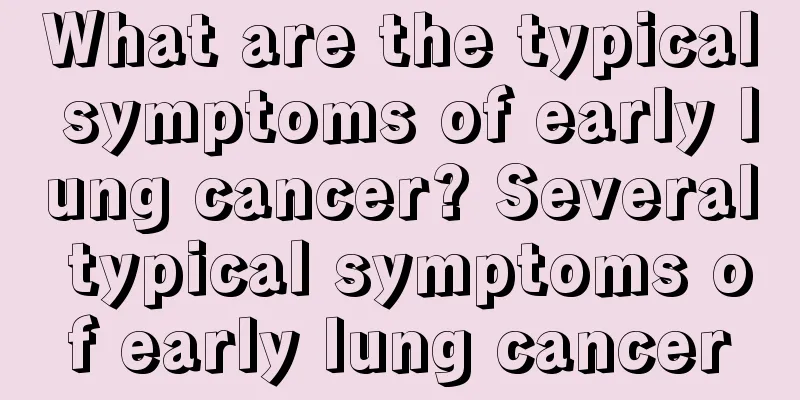I want to vomit when I see disgusting things

|
I believe that in life, many people often feel like vomiting when they see disgusting things. In fact, this situation is a personal gastrointestinal reaction. Some people are born with poor gastrointestinal function, so when they smell some odors or see some things, they will suddenly feel nauseous and vomit. Why do I feel nausea and vomiting? There are many causes of nausea and vomiting, and almost any illness or substance you can think of can cause nausea. There is a professional diagnosis website (DiagnosisPro) that lists 709 causes of nausea and 769 causes of vomiting. But about one in ten cases of nausea and vomiting still has no known cause. Although vomiting usually precedes nausea, nausea usually does not develop into vomiting. Nausea is a feeling, while vomiting is a movement triggered by nausea reaching a certain level. The protective effects of nausea and vomiting are obvious if we eat something indigestible, such as hard bones, or poisonous or harmful food. Vomiting can be discharged quickly. And because of the strong feeling of nausea and discomfort, it can leave a deep impression in the memory and reduce the chance of being hurt next time. Some scholars even suggest that the common pregnancy reaction among humans may be the result of natural selection. In the early stages of pregnancy, the fetus and pregnant woman's resistance to toxins, foreign pathogens and parasites has not been established or is weakened. Sensitive nausea and vomiting reactions can reduce the chance of food poisoning and the risk of miscarriage and stillbirth. Like all sensations, nausea and vomiting have distinct feelings, so the brain must be involved. After loss of consciousness, such as in a coma or vegetative state, there will be no more nausea and vomiting, even if injected with drugs that can directly cause nausea and vomiting. Like the laws of other neural activities, the more vital a reaction is to human life, the more it is controlled by the lower-level nerve center of the brainstem, and thus the more difficult it is to be controlled by voluntary consciousness, although the brain can temporarily control it for a short period of time. The vomiting reflex is directly controlled by the brain stem. When the body is in a hurry to expel the contents of the stomach and duodenum through vomiting, it is difficult to control it by willpower. The same is true for respiratory movements, which are controlled by both the brain stem and the brain. You can hold your breath for a while, but the increase in carbon dioxide will strongly drive the respiratory muscles through the brain stem, making it impossible for you to control it. Because the entrance and exit of breathing and food are very close in the pharynx, vomiting into the respiratory tract may cause suffocation and death. Therefore, when swallowing and vomiting, the nerves will also delicately adjust to temporarily close the respiratory tract. Conversely, consciously maintaining breathing exercises can also have an inhibitory effect on nausea and vomiting. Anyone who has undergone a gastroscopy will remember that the endoscopist will ask you to maintain steady breathing, which can effectively reduce nausea and vomiting. When the nerve cells of the vomiting center are activated to a certain degree and number, they will discharge to the muscles that control the abdominal muscles and diaphragm. The abdominal muscles and thorax will contract strongly, and part of the stomach will be squeezed and folded into the esophagus to form a hernia sac, and the contents of the stomach and duodenum will be quickly discharged. At the same time, instructions are sent to the throat to lift it up, increasing the stimulation of nausea and vomiting and making vomiting continue for a period of time. At the same time, the glottis closes to prevent vomitus from being sucked into the trachea and lungs and causing suffocation. The autonomic nervous system will also cooperate to cause the oral cavity to secrete a large amount of saliva to neutralize the acidic gastric juice in vomit and reduce corrosion to the mouth and teeth. Nausea and vomiting have a protective effect when the body ingests harmful substances, but what is the significance of nausea and vomiting when no harmful substances have been ingested? First of all, everyone will think that the things that caused us nausea and vomiting in the past will leave us with memories and form conditioned reflexes. The next time we encounter it, we will feel nauseous even if we don’t eat it, so we can avoid making the same mistake again. But there are some things that most of us have never eaten, such as feces and rotten meat, which make us feel sick just by seeing or even thinking about them. Why is that? In addition, some things that have nothing to do with eating can also cause nausea and vomiting. When reading best-selling foreign novels, I find that the protagonists like to use words like “stomach discomfort” or “nausea” to describe when they are nervous or sad. I also feel disgusted when I read the idiotic remarks made by many big Vs on the Internet. Apart from making us uncomfortable, these seem to have no positive protective significance. |
>>: Does nausea in the morning mean pregnancy?
Recommend
I got a fever after taking the attenuated Japanese encephalitis vaccine
If people's bodies lack antibodies to a certa...
What to do if eyestrain
When we use our eyes for a long time, we usually ...
Men with sciatica should also be alert to prostate cancer
Do you know the symptoms of early prostate cancer...
Why do I feel itchy all over after taking a shower?
The reason why humans take a bath is to avoid the...
Can tomatoes lower blood sugar?
Tomato is a food that many people like to eat, an...
What causes arm numbness after breast cancer surgery?
Numbness in the arm after breast cancer surgery i...
What is the difference between black tea and oolong tea?
Drinking tea is a very elegant and comfortable li...
Fitness without equipment
What kind of fitness method is equipment-free fit...
Is it a fever if the body temperature remains at 37 degrees?
We all know that the normal body temperature of a...
What kind of water is diuretic
Normal urination can speed up the water circulati...
Drinking coffee can also prevent prostate cancer. Ways to prevent prostate cancer
Prostate cancer is a male tumor disease. After su...
Commonly used Chinese patent medicines for gastric cancer
Commonly used Chinese patent medicines for gastri...
Traditional Chinese medicine remedies for treating bladder cancer
Bladder cancer can be divided into many categorie...
What treatments are needed after gastric cancer surgery? There are these treatments
Nutritional supplementation is needed in the earl...
Can I drink yogurt if I have diarrhea
The main reason for the occurrence of a disease l...









